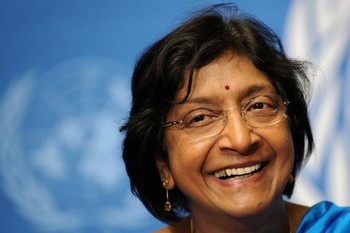CAIRO: One night in April 2007, Karim El Shenawy, a senior at Cairo University’s mass communications department, was home watching the awards ceremony for Al Jazeera International Documentary Film Festival. Not in his wildest dream did he think that a year later, he would be taking home the award for best film.
El Shenawy, along with his colleagues Islam El Gebily, Salma Abulfotouh, Sarah Tarek, Soha Lokman and Rania Galal, got together in April 2007 to produce a short documentary film for their graduation project. Fast forward to the 2008 edition of the film festival, and their film “El Marg Direction won first place in the New Horizon category.
The New Horizon category is for films that are produced by students or for a director’s first production. It all started when they were freshmen in college. Shenawy would tell the group that he wants to make a film about the metro and call it “El Marg Direction.
“I was intrigued by the metro and how it brought together people from different socioeconomic classes everyday but I never thought of how I could present the idea, explained Shenawy.
Throughout his university years, Shenawy joined a number of activities at the American University in Cairo and he noticed the difference between what he saw there and what he saw on the metro. He decided to use his high school friend Tamer Abdel Aziz, a student at AUC who rides the metro everyday, as the link between the two places.
“El Marg Direction juxtaposes life inside the metro with life inside AUC via Abdel Aziz, who lets the audience spend a day in his life at university and takes us with him on his journey back home using the train. The narrator tells a different story linking each metro station he passes with his life as a student at AUC.
The students wanted to develop the idea and present it in an unconventional way so it could stand out from other documentary films in Egypt. “We threw away the rule book because we didn’t want to follow the usual techniques of a documentary since it will only make us a film that is boring, said Shenawy.
“We did something that is upbeat like our everyday life, the shots were fast and the whole film was under 10 minutes. Plus we wanted to show a number of things so we didn’t linger on any one thing for too long, he added.
The group was afraid of the narrative style of the film and how it may bore the audience, especially since it was Abdel Aziz first on-camera experience. However, he proved them wrong. “Tamer [Abdel Aziz] colored the movie with his narration, said Abulfotouh.
Even though the film presents two sides of the spectrum in society – AUC and the metro – most of the shots are of his daily journey on the train.
“We didn’t want a lot of shots from AUC so decided to portray it through his narration and his looks, said Shenawy, referring to the iPod headphones that hang from Abdel Aziz’s ears and the fact that he chose to say “development instead of its Arabic translation.
The students spent four days shooting around Cairo, and the entire documentary took six weeks to make. The process was full of challenges, but “we were determined and had faith in the project so nothing could stop us, said Abulfotouh.
At first, each one of them was overwhelmed with their task. “We were all so stressed out at the beginning, we had to teach ourselves everything. It was the first time for all of us to do any of these things, whether it was to hold a camera, write a script or direct a film, explains El Gebily.
They also had to deal with bureaucratic procedures to get the permit to shoot in the subway, in the streets and at AUC.
The biggest challenge they faced was at the shooting locations, especially inside the metro. People kept interrupting them and fought to get in the picture. “One thing I realized when we were filming, when people find someone with a camera and a microphone they run up to them. They think that’s how they can get their voices heard, irregardless of the channel this person is working for, said Abulfotouh.
On the other hand, some people were hostile and said things like, “You are traitors, you just want to show the negative side of Egypt. Others were afraid of running into trouble with the authorities.
The film was first screened at the Graduation Projects Festival at Cairo University’s mass communications department, and it came in third place. They posted the film on YouTube and it got 1,000 hits in the first week.
It was then screened at El Sawy Culture Wheel’s Documentary Film Festival, the Arab League Youth Forum in Ain Sokhna and at the Arab Film Center in Paris.
“I got a lot of positive feedback from the audience so I decided to enter Al Jazeera’s competition, said Shenawy.
After its screening at the festival in Doha, Qatar, a discussion ensued that set the schedule back 30 minutes. Experts in the film industry, including Egyptian scriptwriter Mahfouz Abdel Rahman, praised Shenawy for a job well-done.
However, the students did not receive praise from the one place they were waiting for: their own university.
“We didn’t even get a phone call congratulating us, said Abulfotouh. The university only acknowledged them when a representative called Dream TV’s “Al Ashera Masaan after Shenawy was interviewed and said this is the product of their academic supervision and financial support.
The team, however, begs to differ. “We self-funded this projected, and it cost us LE 7,000. If the academic supervision did anything it was set us back because they didn’t want us thinking outside the box at all, said Shenawy.
The group is currently preparing two documentary films, one on illegal immigration and another on cultural identity.
“El Marg Direction will be screened in November at Hope for Arab-Europian Cinema Center in Spain. It is then due to be screened in France and later in China.
“We didn’t deal with it as a graduation project, we dealt with it as the first step in our careers. If we didn’t have this attitude, I’m sure we wouldn’t have gotten to where we are now, said Shenawy.


